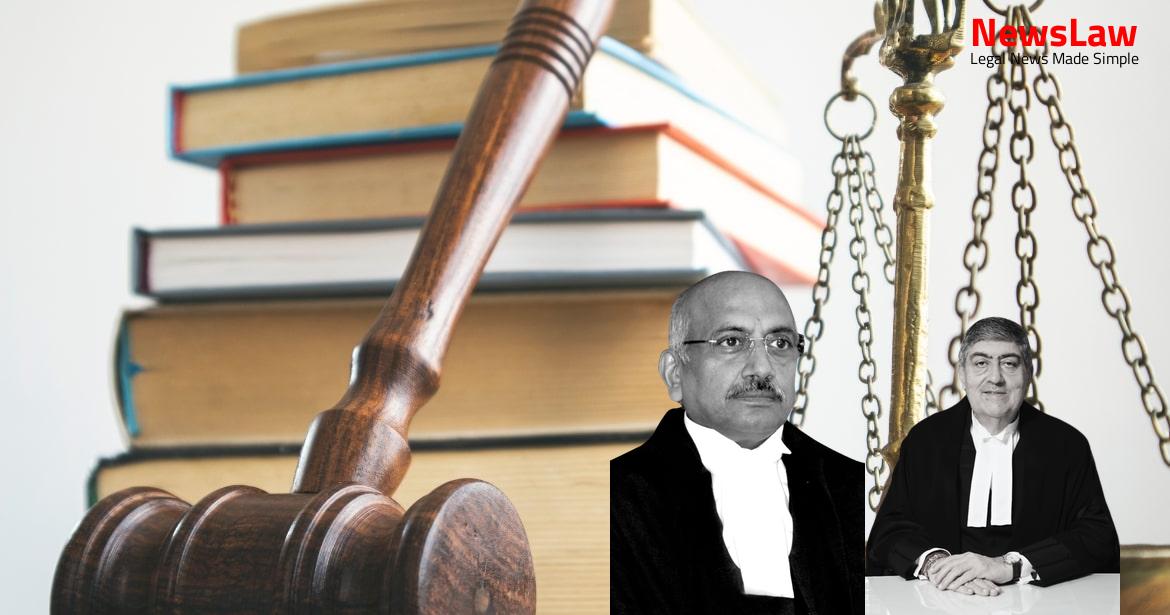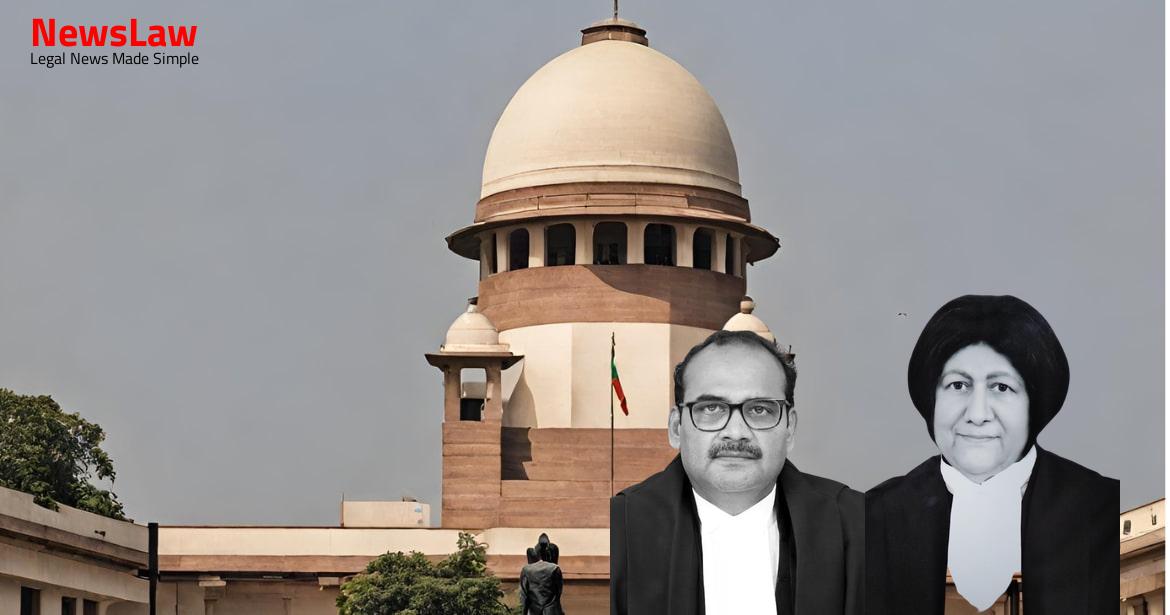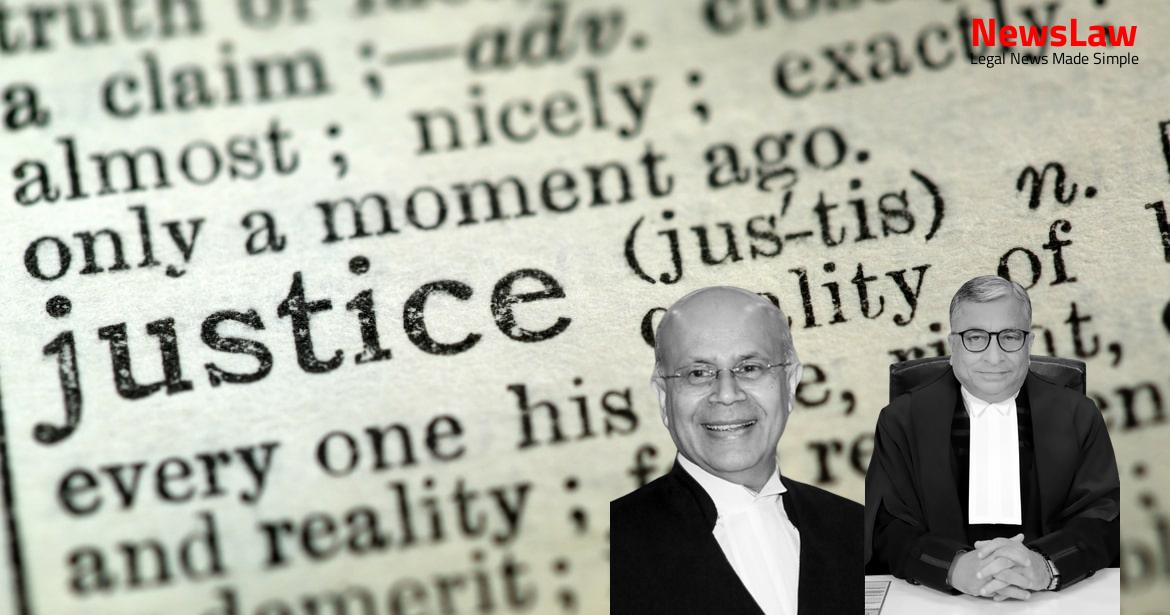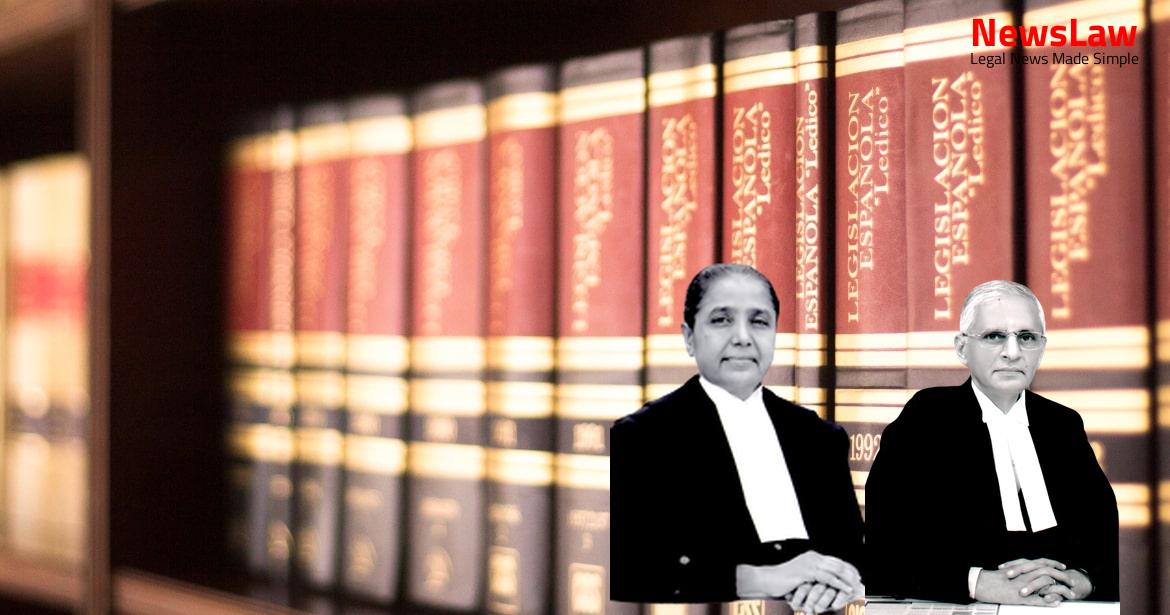The Court’s in-depth legal analysis on the requirement of compulsory registration for a compromise decree involving land not part of the suit sheds light on family settlements and pre-existing rights. The discussion on the interpretation of the Registration Act provides valuable insights into the complex legalities surrounding such cases. This summary explores the key issues and considerations of the Court’s analysis.
Facts
- The appellant filed a suit for possession in 1978 disputing the Will dated 04.12.1958 in favor of the defendant.
- The appeal by the appellant was allowed by the District Judge, Hamirpur on 19.08.2004.
- The terms of compromise were challenged in a second appeal before the High Court.
- The plaintiff sought mutation of 1/2 share of the land as per the decree passed in 1983, which was allowed by the Naib Tehsildar.
- An appeal against the mutation was disposed of with a direction for a re-decision by the Naib Tehsildar.
- A suit for declaration challenging the orders passed in mutation proceedings was dismissed.
- The plaintiff, one of the two sons of late Vijendra Singh, is appealing the judgment and decree passed by the High Court on 28.10.2006.
- The appeal filed by the defendant was dismissed due to the compromise decree being unregistered and against the Registration Act, 1908.
- During the pendency of the suit, a decree was passed based on a compromise between the parties.
- The appellant later filed a suit challenging the decree, which was dismissed by the Sub Judge, Ist Class, Hamirpur on 20.11.2002.
- The High Court set aside the judgment and decree passed by the first appellate court.
- The suit was dismissed on the ground that the land subject to compromise was not the subject matter of the suit.
- The decree required registration under Section 17(2)(vi) of the Registration Act, 1908.
- The main question in the appeal is whether a compromise decree involving land not part of the suit requires compulsory registration.
Also Read: Supreme Court Judgment on Single Till Mechanism for HRAB Calculation: A Comprehensive Analysis
Analysis
- Family settlement only declares pre-existing rights possessed by the parties.
- Aggrieved person can seek enforcement of family settlement in a suit for declaration if family members have some semblance of right in the property.
- Family settlement can be entered into during the pendency of proceedings before the Civil Court and is binding within the family members.
- If a document is sought to be enforced and not recognized by a decree, the provision of clause (v) of sub-section 2 of Section 17 of the Registration Act, 1908 applies.
- A compromise decree can be passed even if the subject-matter of the compromise or satisfaction is not the same as the subject-matter of the suit.
- The judgement and decree of the High Court holding that the decree requires compulsory registration is erroneous in law.
- The settlement between family members may or may not require registration based on the nature of the settlement.
- The judgment in Bhoop Singh dealt with cases where the decree holder does not have a pre-existing right in the property and where the decree holder has a pre-existing right, such as in the case of a right over passage.
- In Bhoop Singh v. Ram Singh Major, it was held that any decree or order, including a compromise decree, creating a new right, title, or interest in immovable property of a value of Rs. 100 or above, requires registration.
- The case of K. Raghunandan v. Ali Hussain Sabir involved a decree regarding disputes between neighbors over a passage, which was held to require registration.
- In the Phool Patti v. Ram Singh case, the judgments in Bhoop Singh and K. Raghunandan were found to be inconsistent, leading to a referral to a larger Bench for clarification.
- The 11 compromise was a result of the death of their father.
- No new right was being created for the first time.
- Therefore, compulsory registration was not necessary.
Decision
- The appeal is allowed
- The suit is decreed
Also Read: Selection and Appointment of Judicial Officers in Himachal Pradesh
Case Title: RIPUDAMAN SINGH Vs. TIKKA MAHESHWAR CHAND (2021 INSC 320)
Case Number: C.A. No.-002336-002336 / 2021



